Real estate investment: red flags loom large for property buyers, Are sunny days over for Queensland real estate investors
The heightened risk of buying interstate instead of in your home town, should be lower these days thanks to modern technology. But serious issues still remain.
Property
Don't miss out on the headlines from Property. Followed categories will be added to My News.
Buying an interstate investment property always carries a higher risk than in one’s home town. The lack of knowledge coupled with tyranny of distance can cause headaches.
Especially if the acquisition has been clouded by the idyllic holiday time spent at the location, or while following the herd into over paying.
This heightened risk should be lower these days than in decades past given the internet affords potential buyers far greater insights into past sales, recent price comparables, actual rentals, and also crucial planning information.
It was not that long ago when unscrupulous marketeering took advantage of the dreams and ignorance of investors.
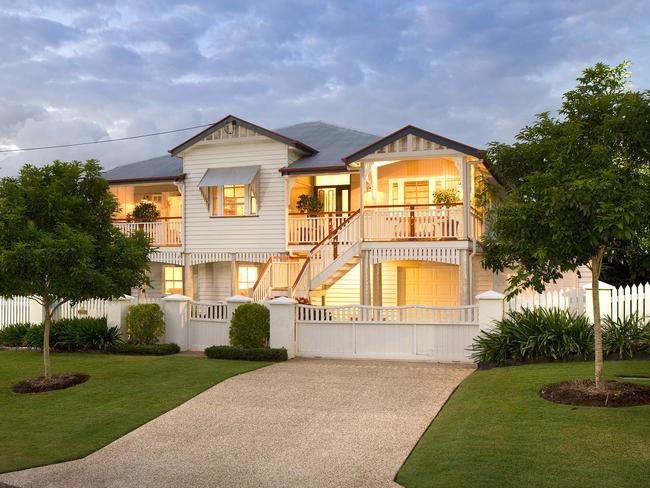
Especially Queensland marketeers, who under no regulation at all, through offshore cold call centres coached to employ aggressive sales tactics, flew potential investors mostly into glamorous coastal development sites and apartment blocks and gave them the hard sell.
There was no time for independent advice, just an obliging conveyancer at the ready to see the purchase contract signed before the return flight home to NSW or Victoria.
Worse still there was a two-tier market pricing: one price for local buyers and another, much higher, price for non-locals.
So these thousands of victims of two-tier marketing overpaid on average, $60,000 more, with the Queensland Department of Fair Trading estimating that investors lost more than $100 million over a six-year period in the late 1990s.
The most recent folly was not even a decade ago.
It was when we witnessed the silly dive into mining town investments. Despite the warnings, the naivety and greed of investors saw the silliest of property booms in Queensland towns like Gladstone.
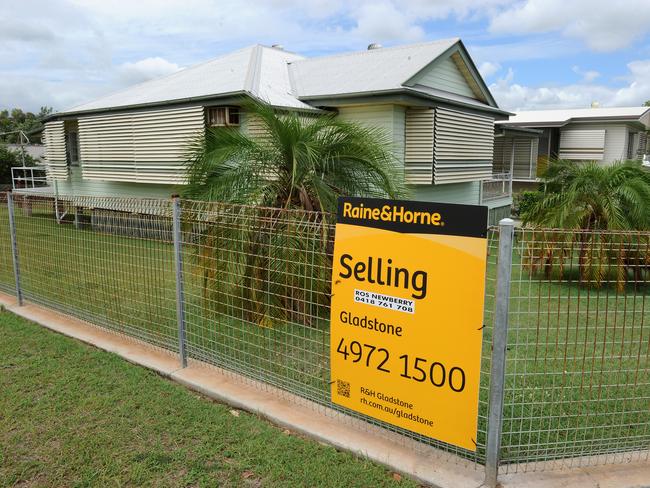
The Gladstone property market driven by liquefied natural gas and coal projects was always going to be volatile, with the subsequent fall in rents flowing through to softer prices.
At one stage CoreLogic calculated more than 80 per cent of Gladstone homes were selling at a loss – the highest known rate in memory across the country.
It sat late last year at 66 per cent for Gladstone units.
Little wonder, against this backdrop, that interstate investors are among the most outraged at the plans of the Queensland Government to tax interstate property investors.
One aggrieved investor purchased in Gladstone in 2013 for $500,000 securing a rental of $700 a week.
They estimate the property is now worth $150,000 with $180 a week rental.
“We have a mortgage of three times what it is worth. All we want to do is get back to break even and sell,” she advised after the recent Queensland Government tax measure announcement.
“We do own an investment in NSW which will put us over the threshold for Queensland land tax purposes so now we will have to pay tax on an ‘investment’ which is anything but.
“These purchases were to fund our retirement, instead that retirement date is already getting further and further away,” she noted.
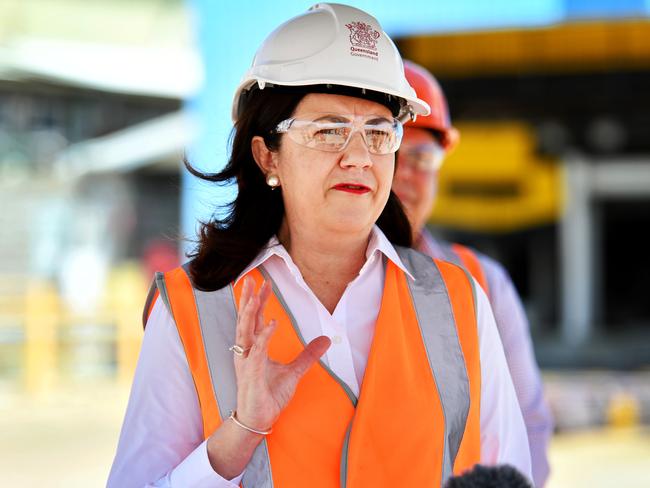
‘DEATH TAX’: ARE SUNNY DAYS OVER FOR QLD REAL ESTATE INVESTORS
It has been a strategy for keen investors to spread their property portfolio across states.
It helped spread their portfolio risk given different markets typically perform in different ways through property market cycles.
And investors were also mindful to minimise their state-based taxes.
But investors have been thrown a curve ball after the Queensland government announced last December that they will be imposing a new property tax that will be directed at investors from interstate.
Treasurer Cameron Dick made the surprise announcement when presenting the state’s mid-year budget update, couching it as a housing affordability measure last December.
The new land tax calculation for investors with property in Queensland will include the value of an investor’s real estate assets outside of Queensland to determine their land tax bill on their Queensland portfolio.
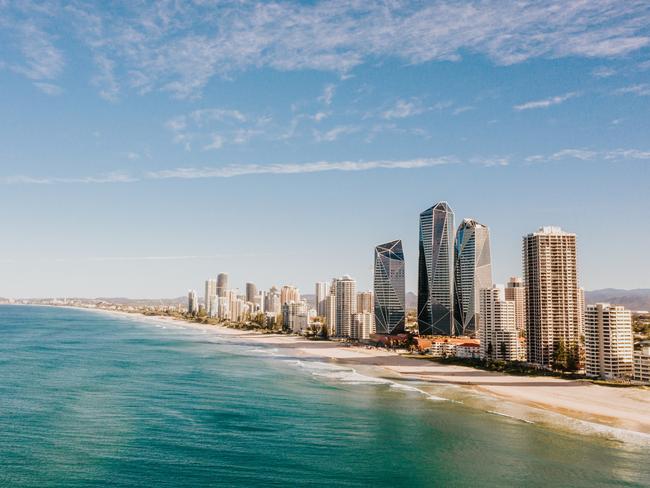
Dick claimed the tax closes a “loophole” as interstate buyers can currently enjoy the tax-free threshold on land holdings worth up to $600,000 in Queensland. He just inappropriately pinpointed “speculators” when it will equally apply to longtime investors in the state.
“At the moment, interstate property speculators can claim the tax-free threshold and take advantage of lower land tax rates in multiple states. That means these investors can amass multistate portfolios that fall below the land tax threshold in any single state.
“Queenslanders with their entire landholding in this state end up paying more tax than these interstate investors,” he noted before adding that “young families in places like Logan and Ipswich face unfair competition from Sydney-based speculators who are flipping properties around the country at a furious rate.”

An investor with $1 million taxable landholdings in Queensland pays $4,500 in land tax. But an investor with a $600,000 land valuation in Queensland and a $400,000 holding in NSW would pay only $500 in Queensland land tax. Under the new system the investor would pay $2,700.
Unlike the death duty abolition by the Joh Bjelke-Petersen Government that saw investment pour into Queensland in 1977, triggering other states and Commonwealth to then copy his move, this measure by Dick will see some investors sell their Queensland investments. Other investors will avoid Queensland as a place to invest in the future.
Of course other state treasurers might decide to jump on-board, as they have with the payroll taxation regime, so that investors could be taxed wherever they go.
The new tax is likely to apply to land tax assessment notices for the year ending 30 June 2022.
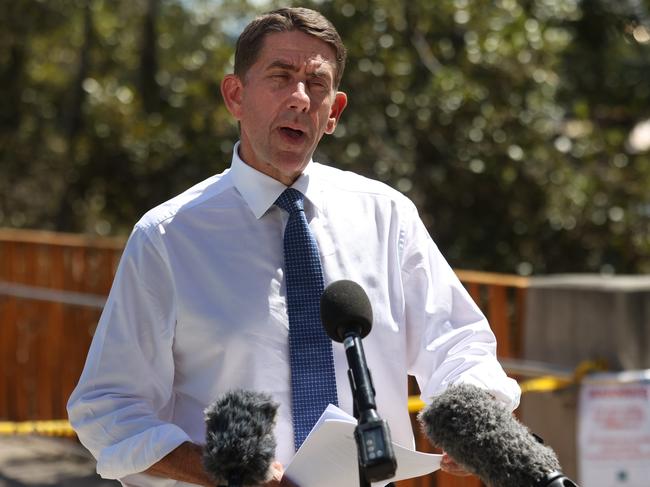
Of course Scott Morrison cruelled the Queensland property investment yield for many NSW investors as treasurer with his 2017 budget tax amendments.
Morrison’s measure denied all travel deductions relating to inspecting and maintaining a residential investment property as some taxpayers were claiming travel without correctly apportioning them for private holiday use.
More Coverage
Originally published as Real estate investment: red flags loom large for property buyers, Are sunny days over for Queensland real estate investors





